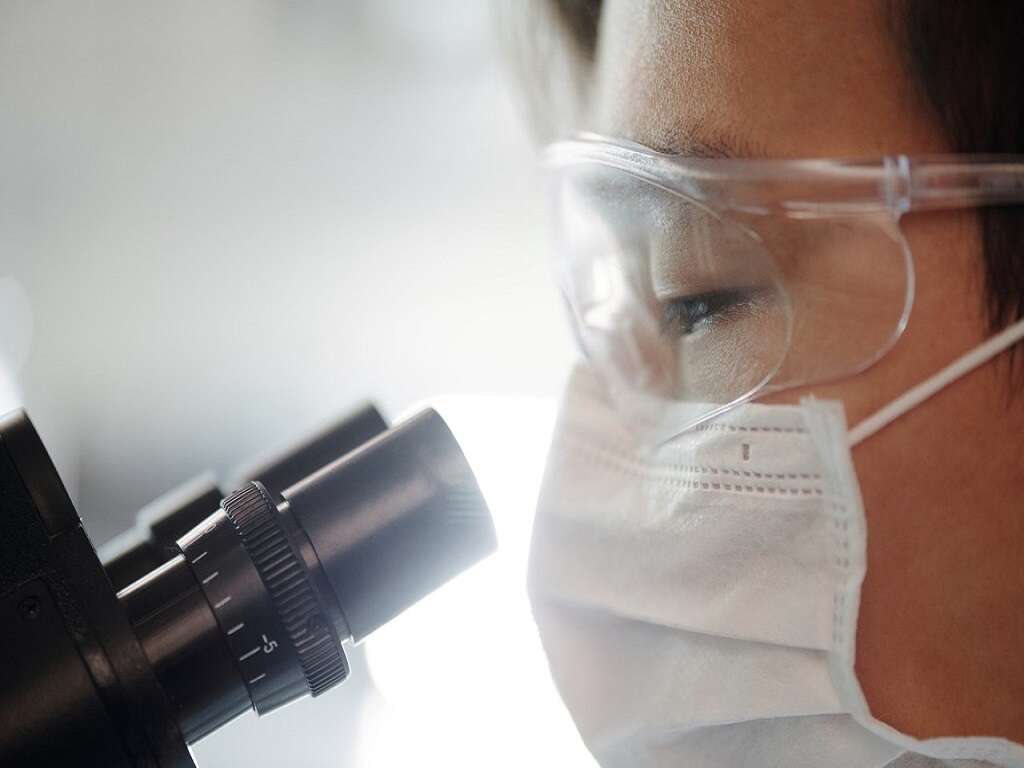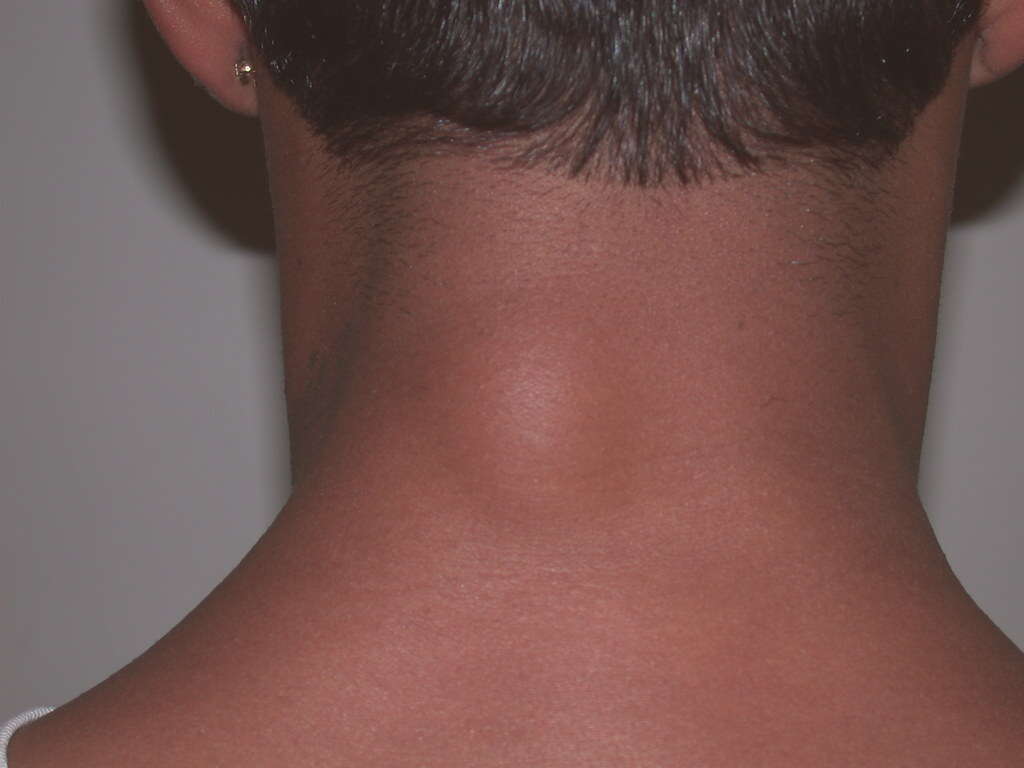What Is a Cyst?
A cyst can be defined as a closed sac or capsule that has formed in the body. It can have a division or distinct membrane and contain semisolid material, air, or fluid. Although there are many different types of cysts, most are benign and noncancerous. Once a cyst has formed, it may resolved on its own or may need to be removed surgically depending on the location and type. A cyst may need treatment if the cyst is causing symptoms such as pain and discomfort or infection.
Cancer-related cysts are believed to be a defense mechanism for the body due to the development of mutations that may lead to uncontrolled cellular division. When this occurs, the body tries to encapsulate the cells to contain the tumor. However, mutation may continue and form new blood vessels that advance to become cancerous.

1. Epidermoid Cysts
An epidermoid cyst is a benign cyst often found on the skin. While some patients have no symptoms, it can also be painful when touched. It is generally found in areas where there is little hair distribution. Although benign, there are some cases where malignant tumors have been reported to arise from an epidermoid cyst. An epidermoid cyst is believed to be caused by the implantation of epidermis into the dermis (deeper layer of the skin) due to surgery or trauma. It can also occur when there is a blocked pore next to a body piercing. Epidermoid cysts can become infected by bacteria and form a pimple-like shape. The cyst can be removed through surgical excision.
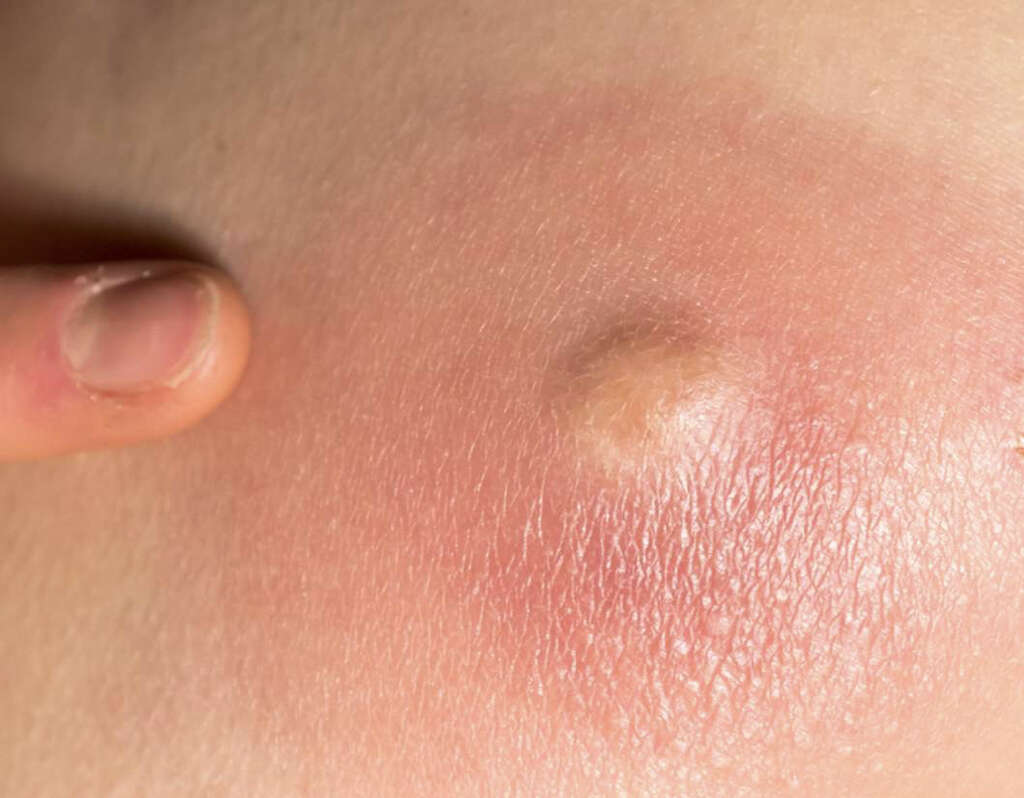
2. Pilar Cyst
A pilar cyst, or trichilemmal cyst, is a cyst that forms from a hair follicle. It is most generally seen on the scalp as it occurs in areas with a high concentration of hair follicles. Therefore, about 90% of pilar cysts are found on the scalp with 30% as a single cyst and the other 70% as multiple cysts.
These cysts are generally mobile, smooth, and filled with a protein component known as keratin. Keratin can be found in hair, skin, and nails. The risk of pilar cysts are higher in those with a positive family history. The cyst may or may not be tender or inflamed depending on whether it has ruptured. The treatment of a pilar cyst generally involves surgery that can be performed under a local anesthetic or a punch biopsy.
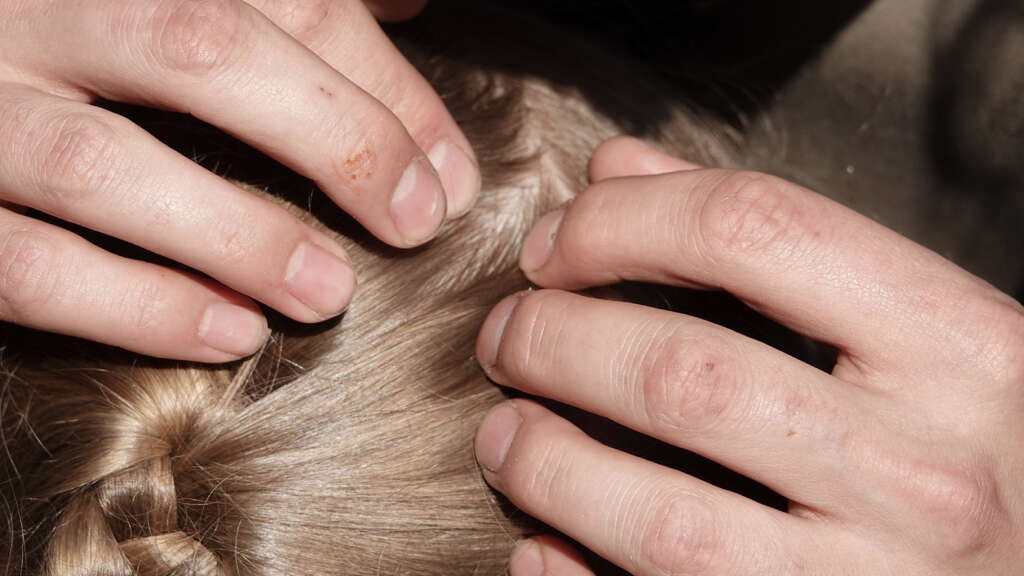
3. PCOS
PCOS (polycystic ovary syndrome) is a condition where symptoms occur due to elevated male hormones (androgens) in females. This can result in heavy menstruation, absent menstruation, hirsutism (excess body and facial hair), pelvic pain, acne, difficulty conceiving, and patches of dark velvety skin.
Some associated issues include obstructive sleep apnea, obesity, diabetes, and heart issues. Experts believe that PCOS occurs due to a combination of environmental and genetic factors. The diagnosis is based on 2 of 3 findings: high androgen levels, presence of ovarian cysts, and anovulation. Although there is no cure for the condition, symptoms may improve with lifestyle changes such as having a regular exercise routine, weight loss, use of oral contraceptive pills, and metformin.

4. Chalazion
A chalazion is a cyst that occurs on the eyelid when an oil gland is blocked. It is generally seen as a swelling on the middle part of the eyelid, painless, and erythematous (red). The swelling may gradually increase in size over several weeks. The eyelid can be tender with increased tearing, redness of the conjunctiva, and heaviness of the eyelid.
Treatment often includes the use of topical antibiotic eye drops such as fusidic acid or chloramphenicol. In some patients, the chalazion may also disappear on its own without further treatment. Healing of the chalazion can be facilitated through the application of a warm compress to the affected eye for 15 minutes several times a day to promote drainage and healing. Larger cysts can be surgically removed under local anesthesia.
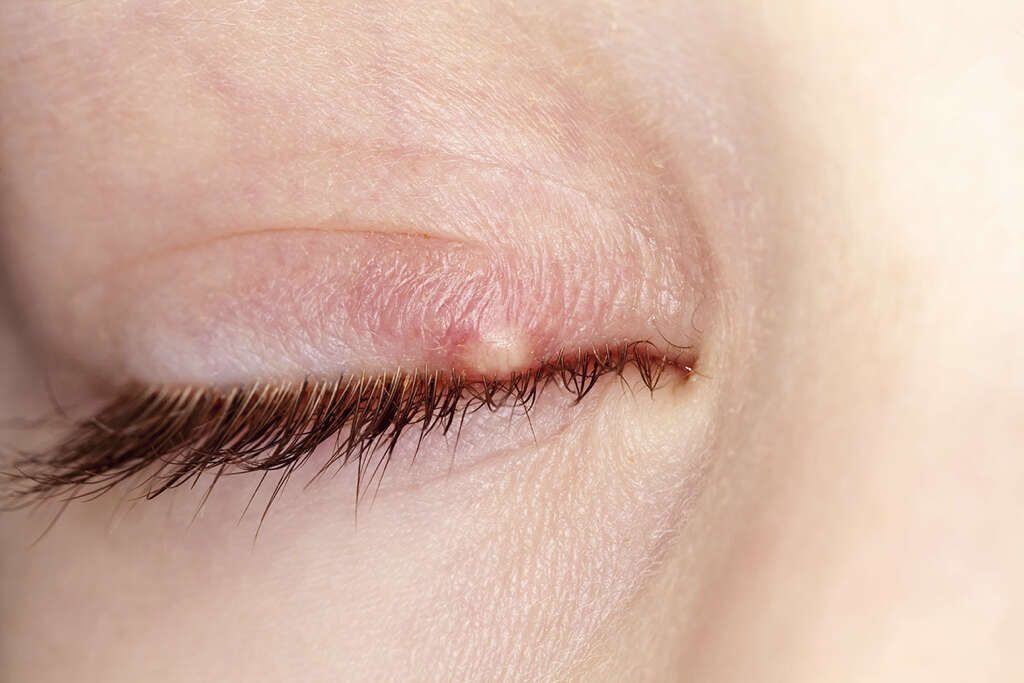
5. Ganglion Cyst
A ganglion cyst is a cyst filled with fluid and is often associated with a tendon or joint sheath. It is most commonly found at the back or front of the wrist. The ganglion cyst generally develops over several months. Some symptoms of ganglion cysts include pain, numbness, and may result in carpal tunnel syndrome.
The cause of ganglion cyst is still unclear. However, the underlying mechanism is believed to involve an outpouching of the synovial membrane. The risk of a ganglion cyst increases in those who perform sports such as gymnastics. Diagnosis can be achieved via examination by shining a light through the lesion. Medical imaging may be useful to rule out other causes. Treatment of ganglion cysts include observation, splinting, needle aspiration, and surgery.
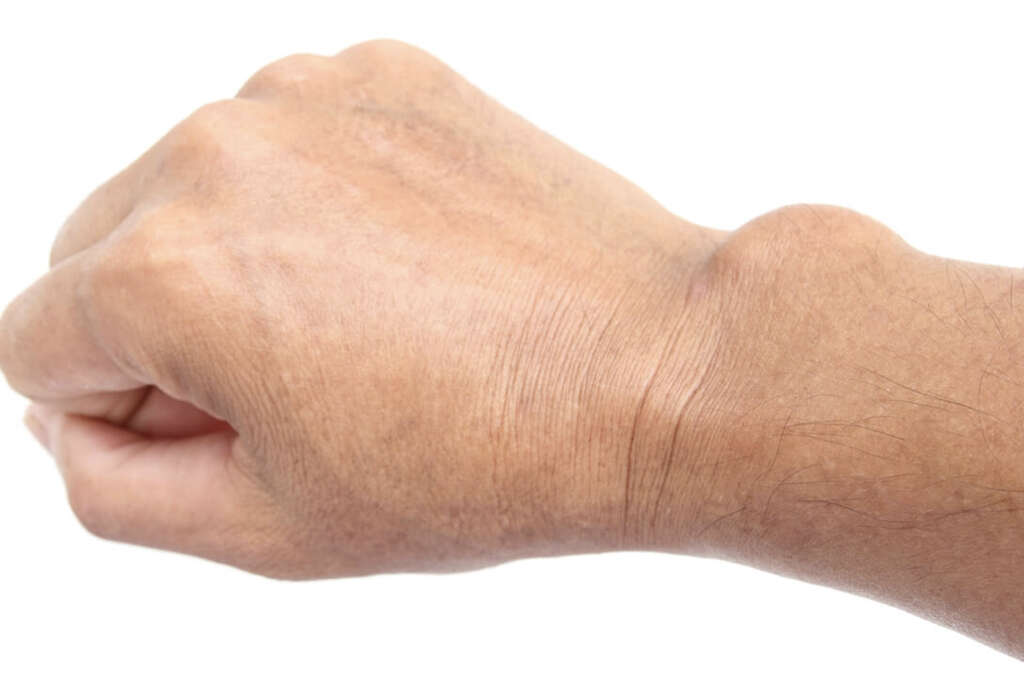
6. Renal Cyst
A renal cyst is a cyst found in or on the kidney. It is generally a fluid collection that is benign and only requires observation without the need for invasive treatment. Renal cysts that are suspected to be malignant or cancerous are usually removed through a surgical procedure known as nephrectomy.
Multiple renal cysts can be seen in cystic kidney diseases such as medullary sponge kidney and polycystic kidney diseases. The classification of the risk of malignancy can be done using the Bosniak Classification System, which divides the renal cysts into five groups. A complex cyst can be evaluated using a contrast computed tomography (CT) scan, contrast enhanced ultrasound, or doppler ultrasonography. Treatment depends on the type of renal cyst.
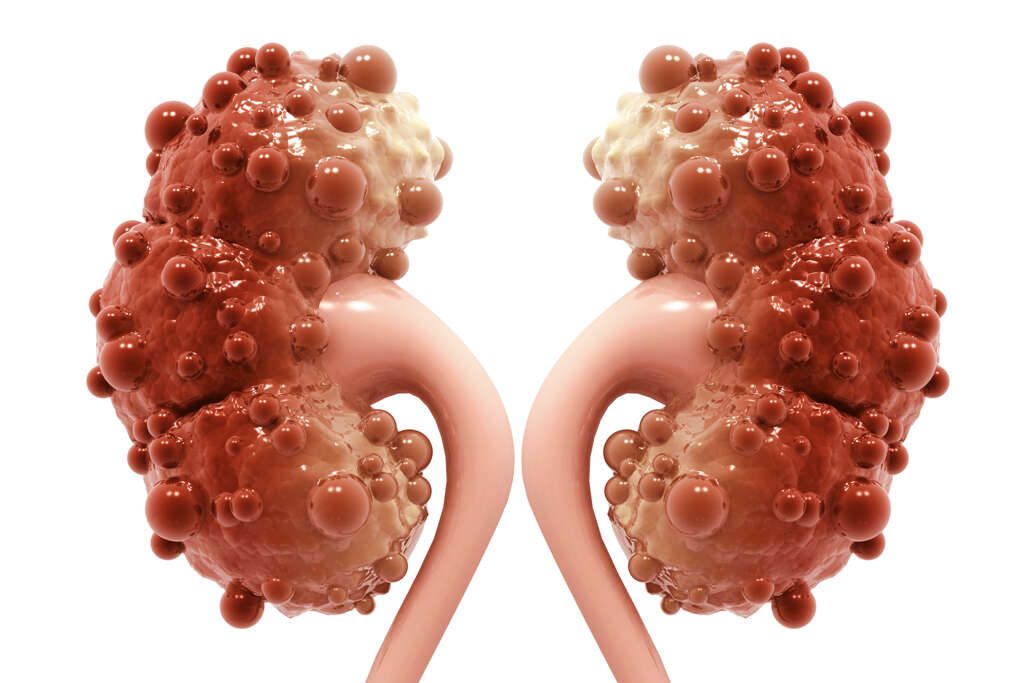
7. Pilonidal Cyst
A pilonidal cyst is a cyst caused by a skin infection. It is usually found between the cheeks of the buttocks or lower back. The symptoms of a pilonidal cyst often include redness, pain, and swelling. The risk factors of a pilonidal cyst are positive family history, obesity, prolonged sitting, greater amounts of hair, and having a sedentary lifestyle.
The pilonidal cyst may also contain skin debris and hair. The diagnosis of a pilonidal cyst can be made based on the physical examination and symptoms. In cases where there is an infection, it can be treated through incision and drainage. Prevention of the pilonidal cyst includes shaving of the area. It is estimated to affect 3 per 10,000 individuals annually, occurring more in males compared to females.

8. Breast Cyst
A breast cyst is a cyst in the breast that is filled with fluid. Breast cysts are often described as oval or round lumps with distinct edges. Although some cysts may feel like a water filled balloon, some may feel firm. Breast cysts are generally benign but can cause pain and discomfort.
It is most common in premenopausal women who are in their 30s or 40s and disappears after menopause. Breast cysts are also common in adolescents and can present as part of fibrocystic disease. Treatment of breast cysts are generally not necessary unless it causes patients discomfort and pain. Most cases may experience less discomfort after the fluid is drained from the cyst.

9. Thyroglossal Cyst
A thyroglossal cyst is a cyst that forms due to a persistent thyroglossal duct. It can be defined as a lump or irregular neck mass developing from cells that are left over from the formation of the thyroid gland during the developmental stages. Thyroglossal cysts are a common cause of midline neck lumps that occur.
Thyroglossal cysts usually develop during birth. Signs and symptoms include movement of the neck mass during protrusion of the tongue or swallowing. Some may also present with pain in the neck or throat or pain during swallowing. Complications of a thyroglossal cyst include infection, thyroglossal fistula, and thyroglossal duct cyst carcinoma. Diagnosis of a thyroglossal cyst includes a blood test, ultrasound, thyroid scan, and fine needle aspiration.
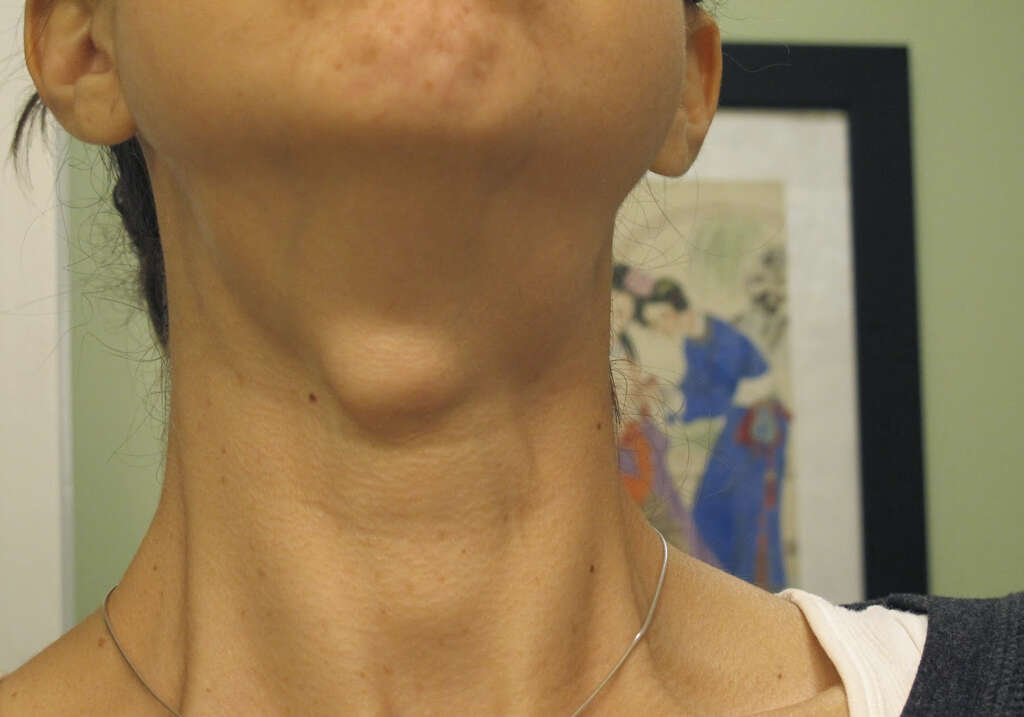
10. Chocolate Cyst
A chocolate cyst, or endometrioma, occurs when there is presence of endometrial tissue in or on the ovary. It is most often found in the space between the rectum and vagina and surface of the uterus. These cysts are noncancerous and are known as chocolate cysts due to the brown and tar-like appearance of melted chocolate.
This color is derived from old menstrual blood that fills the cyst. It is estimated to occur in 20% to 40% of women who suffer from endometriosis. Treatment options include nonsteroidal anti-inflammatory drugs (NSAIDs) for the pain, progestational agents, danazol, and gonadotropin releasing hormone agonists. Laparoscopic surgical approaches may include the excision of the chocolate cyst and ovarian adhesions.






